Music PR Strategies for Aspiring Musicians

In today's competitive music industry, effective Public Relations (PR) is crucial for aspiring musicians looking to build their careers and reach wider audiences. PR is not just about gaining publicity; it's about strategically managing your image, crafting your narrative, and connecting with your audience.
Quick Summary
In the competitive music industry, effective Public Relations is essential for aspiring musicians to build their careers and connect with audiences. Key strategies include establishing media relations, creating engaging content, and building a consistent brand image. Musicians should craft compelling press kits and engage consistently with media and fans through social media. Collaborations can also enhance visibility, while hiring a PR professional may be beneficial for managing publicity as on
This blog post delves into the essential music PR strategies that can help you carve out a successful career in the music industry. From building your brand to leveraging digital platforms, these strategies will give you a foundation to enhance your visibility and credibility.
Understanding the Basics of Music PR

Music PR is the practice of promoting musicians and their work to the public through media channels.
This includes securing media coverage, building relationships with journalists, managing social media, and creating compelling content that resonates with audiences. For musicians, PR is an invaluable tool for creating buzz around new releases, tours, and other significant milestones.
A successful PR strategy encompasses several key components:
- Media Relations: Establishing and maintaining relationships with journalists, bloggers, and influencers.
- Content Creation: Developing engaging content, including press releases, blog posts, and social media updates.
- Brand Management: Ensuring a consistent and professional image across all platforms.
- Crisis Management: Handling any negative publicity or crises swiftly and effectively.
By understanding and leveraging these components, musicians can build a robust PR strategy that not only promotes their music but also enhances their overall brand.
Building Your Brand With Music PR
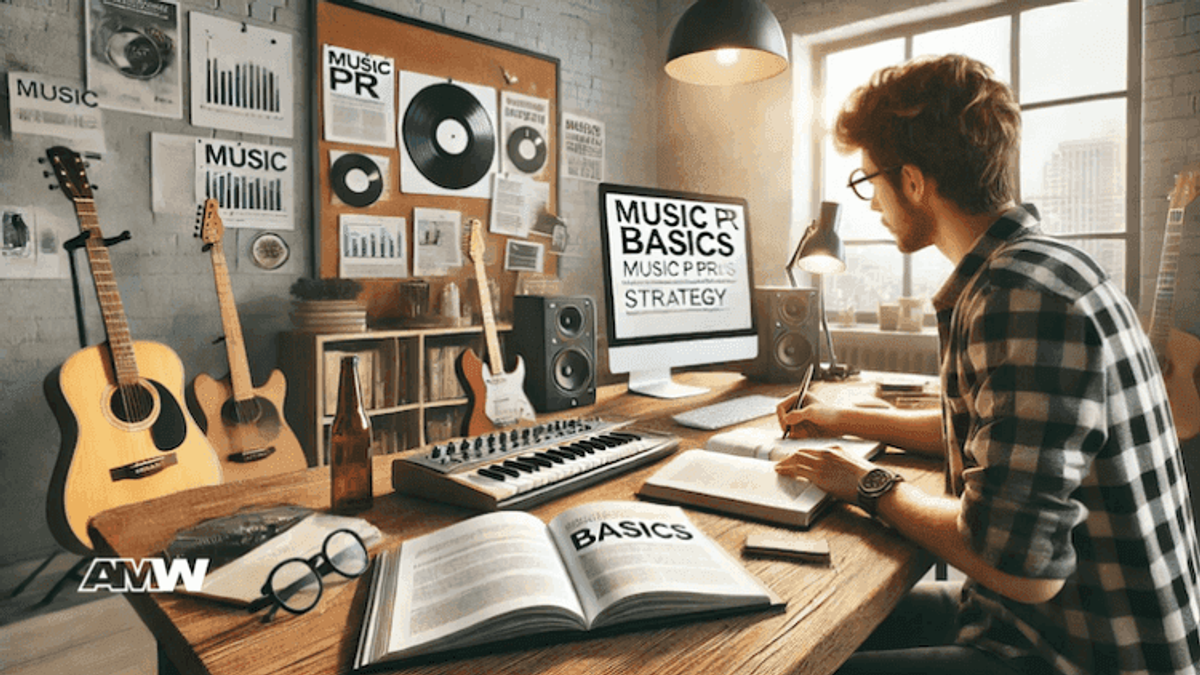
Your brand is your identity in the music industry. It's what sets you apart from other artists and makes you memorable to your audience. Building a strong brand involves several steps:
- Identifying Your Unique Selling Points (USP): What makes you different? Is it your musical style, your story, or your visual image? Identifying your USPs will help you craft a unique brand that stands out.
- Consistent Image and Message: Consistency is key in branding. From your social media profiles to your press photos, everything should align with your brand's image and message. This consistency helps build recognition and trust.
- Developing a Compelling Artist Bio: Your bio is often the first thing people read about you. It should be engaging, informative, and reflective of your brand. Highlight your achievements, your musical journey, and what makes your music unique.
A well-defined brand will not only attract fans but also make it easier for media outlets to understand and promote your music.
Crafting Your Press Kit
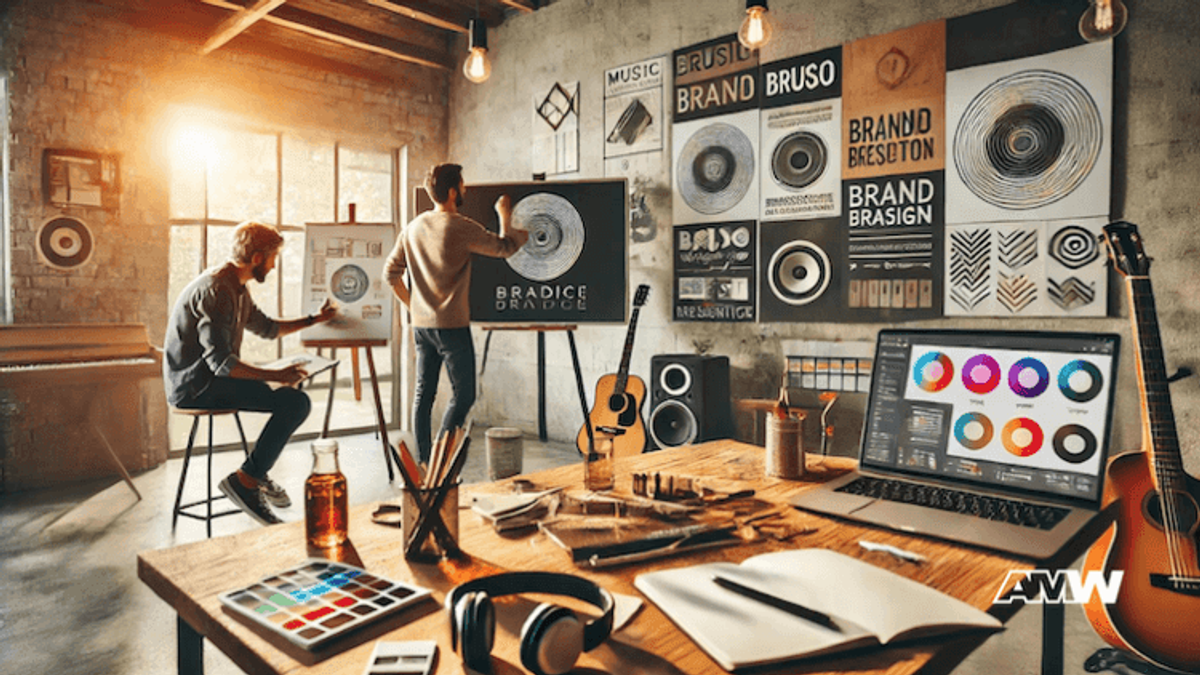
A press kit is a comprehensive collection of materials that provides journalists and promoters with everything they need to know about you. A well-crafted press kit can make the difference between being featured in a publication and being overlooked. Essential elements of a press kit include:
- Artist Bio: A concise and engaging biography that tells your story and highlights your achievements.
- Press Photos: High-quality images that represent your brand. These should be professional and versatile for different media uses.
- Music Samples: Links to your best tracks or recent releases. Make sure these are easily accessible and of high quality.
- Press Releases: Well-written press releases announcing your latest news, such as new releases, tours, or significant milestones.
- Social Media Links: Direct links to your active social media profiles. This helps journalists and promoters understand your online presence and reach.
An effective press kit should be visually appealing and provide all necessary information in a professional format.
Engaging with Media With Music PR
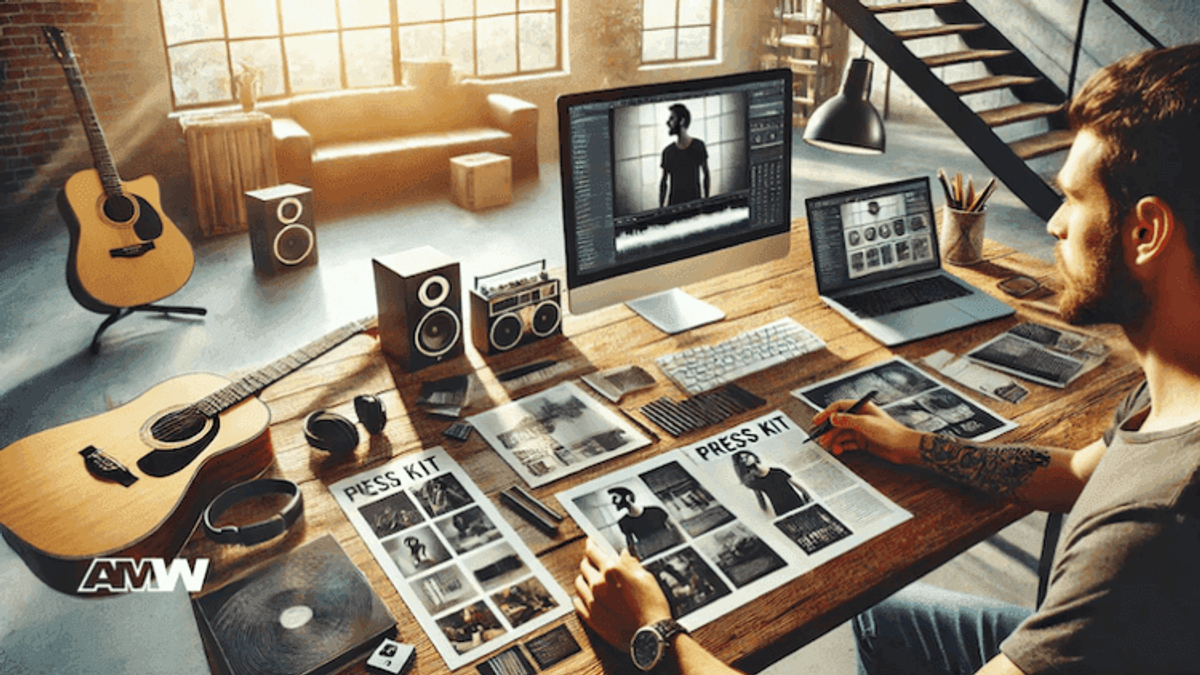
Media engagement is a cornerstone of any successful music PR strategy. Identifying and building relationships with the right media outlets can significantly boost your visibility. Here's how to effectively engage with media:
- Identifying the Right Media Outlets: Research publications, blogs, and media channels that align with your genre and target audience. Make a list of contacts within these outlets.
- Building Relationships: Reach out to journalists and bloggers with personalized messages. Engage with their content on social media and show genuine interest in their work.
- Crafting Effective Pitches and Press Releases: Your pitch should be concise, compelling, and tailored to the recipient. Highlight what makes your story newsworthy and provide all necessary details in a clear format.
Consistent and respectful engagement with media professionals can lead to valuable coverage and long-term relationships that benefit your career.
Utilizing Social Media
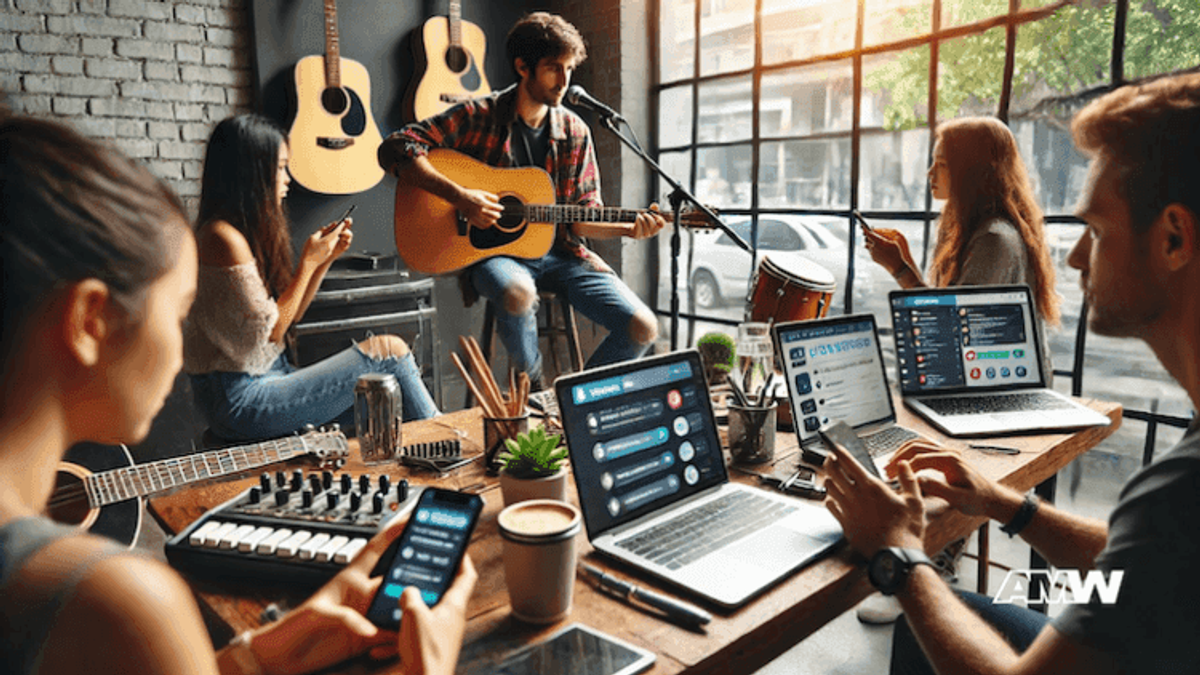
In today's digital age, a strong social media presence is indispensable for musicians. Social media offers a way to connect with fans and share your music. Here are some strategies for effective social media use:
- Consistency is Key: Regular posting helps keep your audience engaged. Use a content calendar to plan and schedule your posts.
- Engage with Your Audience: Respond to comments, participate in conversations, and show appreciation for your fans. Engagement builds a loyal fan base.
- Content: Mix up your content to keep it interesting. Share behind-the-scenes glimpses, live performances, personal stories, and promotional content.
- Analytics and Adjustments: Use analytics tools to track the performance of your posts. Analyze what works best.
By leveraging social media effectively, you can increase your reach, build a community, and drive engagement with your music.
Leveraging Digital Platforms
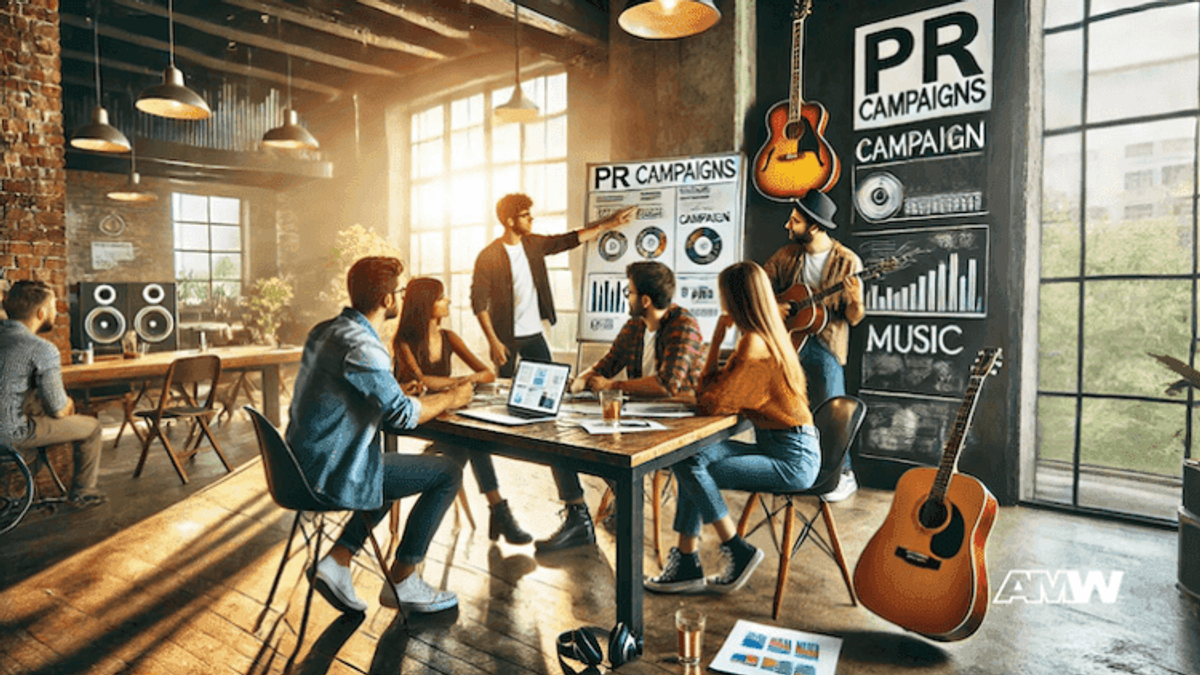
Digital platforms are crucial for distributing your music and gaining exposure. Streaming services, playlists, and video platforms can significantly boost your visibility. Here's how to leverage these platforms:
- Streaming Services: Ensure your music is available on all major streaming platforms. Regularly update your profiles with new releases.
- Playlists: Getting featured on popular playlists can dramatically increase your streams and followers. Submit your music to playlist curators and participate in playlist exchange programs.
- Video Platforms: Platforms like YouTube and TikTok are excellent for sharing music videos, live performances, and engaging content. Optimize your videos with descriptive titles, tags, and thumbnails.
Planning and Executing PR Music Campaigns
A well-planned PR campaign can elevate your music career by creating buzz and attracting media attention. Here's how to plan and execute a successful campaign:
- Clear Objectives: Define what you want to achieve with your PR campaign. Whether it's promoting a new release, a tour, or building your brand, clear objectives guide your strategy.
- Creating a Timeline and Content Calendar:Plan your campaign timeline, including key dates for announcements, releases, and events.
- Measuring Success: Track the performance of your campaign through metrics like media coverage, social media engagement, and streaming numbers. Analyzing these metrics helps you understand what worked and what didn't.
By meticulously planning and executing your PR campaigns, you can maximize your reach and impact.
Collaborations and Partnerships

Collaborations and partnerships can open new doors and broaden your audience. Working with other artists, influencers, and brands can enhance your visibility and credibility. Here's how to approach collaborations:
- Benefits of Collaborating: Collaborations bring new creative ideas, shared audiences, and increased exposure. They can also lend credibility to your brand.
- Identifying and Approaching Partners: Search for artists, influencers, and brands that match your style and values, and approach them with a clear collaboration proposal.
- Case Studies of Successful Collaborations: Study successful collaborations in your genre to understand what made them work. Learn from their strategies and adapt them to your context.
Strategic collaborations can significantly enhance your PR efforts and help you reach new heights in your career.
Hiring a PR Professional
As your career progresses, you might consider hiring a PR professional to manage your publicity efforts. Here's what to keep in mind:
- When to Consider Hiring a PR Professional: If you're releasing a major project, embarking on a significant tour, or simply need help managing your PR efforts, it might be time to hire a professional.
- What to Look For: Look for a PR professional with experience in the music industry, a strong network of media contacts, and a proven track record of successful campaigns.
- Evaluating Effectiveness: Set clear expectations and metrics for success. Regularly review the performance of your PR professional to ensure they are meeting your goals.
Hiring a PR professional can provide the expertise and connections needed to take your career to the next level.
Conclusion

In the competitive world of music, effective PR strategies are essential for aspiring musicians. By understanding the basics of PR, building a strong brand, engaging with media, leveraging social media and digital platforms, planning strategic campaigns, collaborating with others, and potentially hiring a PR professional, you can enhance your visibility and grow your career.
FAQ
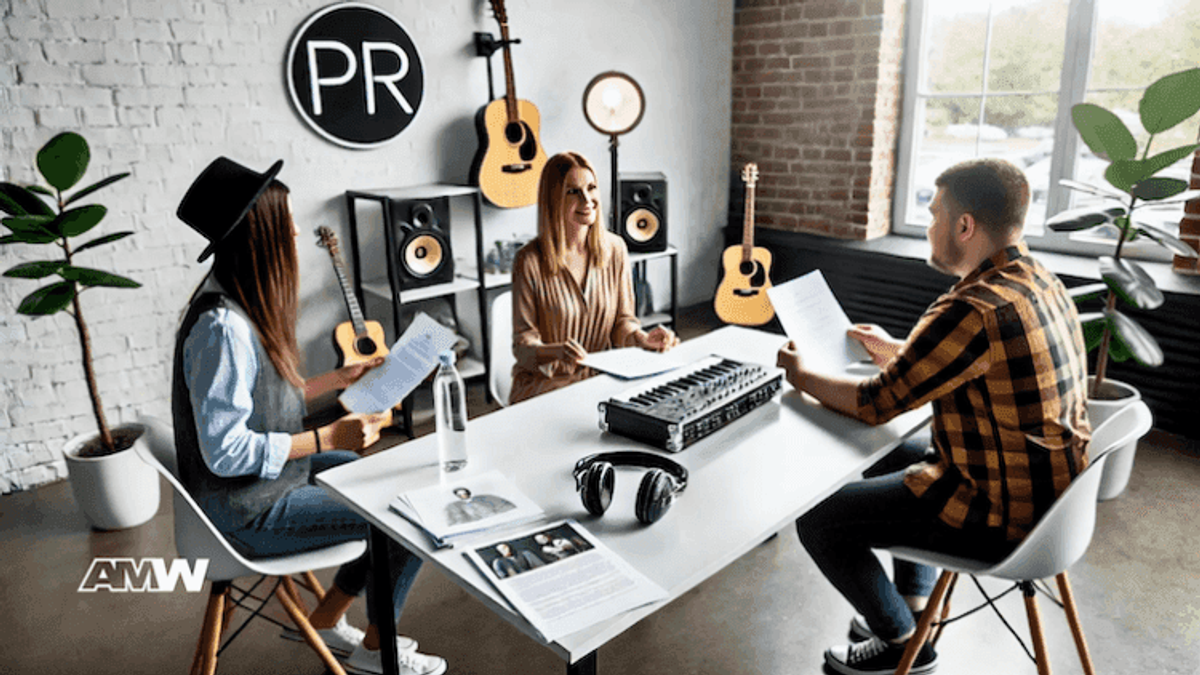
What is the most important element of a music PR strategy?
The most important element is building and maintaining relationships with media, influencers, and your audience.
How can I make my press kit stand out?
Ensure it is professional, visually appealing, and contains all essential information. Highlight your unique selling points and include quality images and music samples.
How often should I post on social media?
Consistency is key. Aim to post at least once a day on major platforms like Instagram, Twitter, and Facebook, and engage regularly with your followers.
Is it worth investing in a PR professional?
Yes, if you have the budget and are at a stage in your career where professional help can amplify your reach and save you time. A good PR professional brings expertise and industry connections.
Frequently Asked Questions
What should be included in a music press kit for aspiring musicians?
A complete music press kit should include five essential elements: a compelling artist bio highlighting your achievements and musical journey, high-quality professional press photos that represent your brand, easily accessible music samples or links to your best tracks, well-written press releases announcing new releases or milestones, and direct links to your active social media profiles. This comprehensive package provides journalists and promoters with everything they need to feature your music professionally.
How do aspiring musicians build relationships with music journalists and bloggers?
Building media relationships requires research and personalized outreach. First, identify publications and blogs that cover your genre and target audience. Reach out to journalists with personalized messages, engage genuinely with their content on social media, and show interest in their work. Craft concise, compelling pitches tailored to each recipient, highlighting what makes your story newsworthy. Consistent, respectful engagement leads to valuable coverage and long-term professional relationships.
What are the most effective social media strategies for music promotion?
Effective music promotion on social media requires consistency, engagement, and diverse content. Post regularly using a content calendar, respond to comments and participate in conversations with fans, and mix content types including behind-the-scenes glimpses, live performances, personal stories, and promotional material. Use analytics tools to track post performance and adjust your strategy accordingly. This approach builds a loyal fan base and increases reach organically.
How can musicians get their songs featured on popular streaming playlists?
To get playlist features, ensure your music is available on all major streaming platforms with optimized profiles. Research and submit your tracks to playlist curators who match your genre, participate in playlist exchange programs with other artists, and maintain consistent releases to stay on curators' radar. Focus on building relationships with playlist owners and consider using playlist submission services while keeping your artist profiles updated with new content.
What makes a strong brand identity for aspiring musicians?
A strong musical brand identity starts with identifying your unique selling points - what makes you different from other artists, whether it's your musical style, personal story, or visual image. Maintain consistency across all platforms from social media profiles to press photos, ensuring everything aligns with your brand message. Develop a compelling artist bio that engages readers and reflects your brand while highlighting achievements and musical journey.
How do you measure the success of a music PR campaign?
Measure PR campaign success through multiple metrics including media coverage quantity and quality, social media engagement rates and follower growth, streaming numbers and playlist additions, website traffic increases, and overall brand awareness improvements. Track mentions across digital platforms, analyze which content performed best, and monitor conversion rates from PR activities to actual music consumption. These metrics help you understand campaign effectiveness and refine future strategies.
What are the benefits of music collaborations for aspiring artists?
Music collaborations offer multiple career benefits including access to shared audiences from your collaborator's fanbase, increased exposure across different markets and demographics, enhanced credibility through association with established artists, and fresh creative ideas that can improve your music. Collaborations also provide networking opportunities, potential for viral content, and cost-effective marketing through shared promotional efforts. Choose partners whose style and values align with your brand for maximum impact.
Related Resources
Calculators
Pricing Guides
Key Terms
The deliberate sequencing of release platforms (theatrical, streaming, VOD) to maximize revenue across all distribution channels.
Creative ProducerA producer focused on story, talent, and creative elements rather than primarily on financing and business aspects.
Stem DistributionReleasing individual component tracks of a song separately, enabling remixing, sync licensing, and fan creativity.
Music Sync AgentRepresentative who secures placement of music in film, TV, advertising, and games.
Social AudioShort-form music content created for social media platforms.
Related Articles

Public Relations for Music: Crafting an Effective PR Strategy
In the music industry, a solid public relations strategy may enhance an artist's visibility, expand their reach, and create meaningful connections with a wider audience. Whether the focus is on an

Mastering the Art of Music PR: Proven Techniques for Maximum Exposure
Did you know that over 100,000 songs are uploaded to Spotify every single day? In a world flooded with musical talent, how does a single note rise above the noise? How does an unknown artist capture h

Mastering Public Relations for Musicians: Building and Protecting Your Music Brand
In the world of music and entertainment, one crucial aspect that cannot be ignored is the realm of public relations (PR). For musicians, PR plays a pivotal role in amplifying your message, building yo
